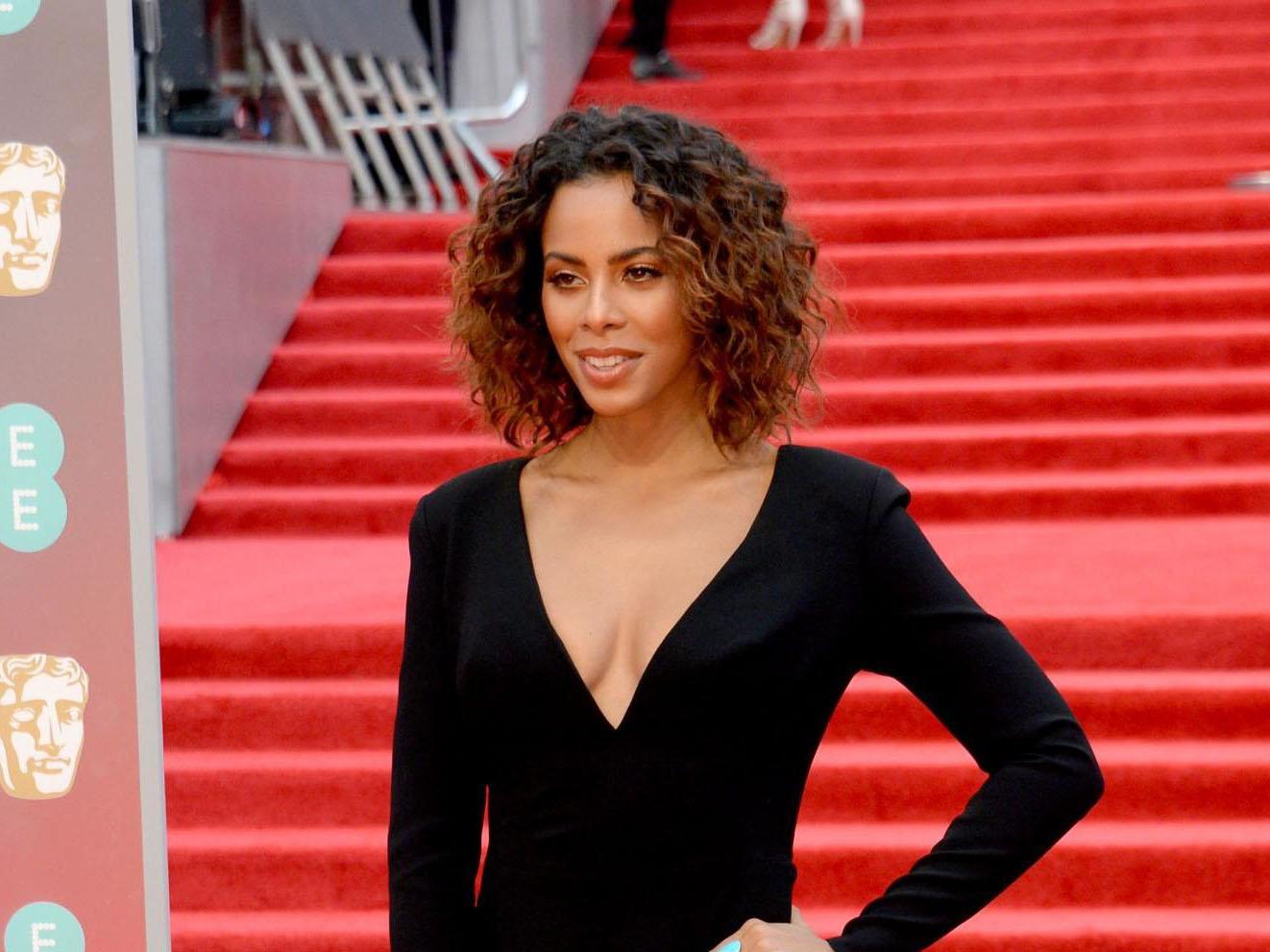By saying curly hair is 'demanding', John Frieda and Rochelle Humes are perpetuating the Eurocentric hegemony of beauty
This is a bitter pill to swallow for many people of colour, in particular black people. Looking at Humes’ Instagram page of a collective she founded called Curls Like Us, the vast majority of models are light skinned, with long, loose, soft textured curls


“Demanding”. That’s how curly hair has been described by John Frieda and Rochelle Humes in their new collaboration.
Not beautiful. Not thick. Not textured: demanding.
Thanks guys, my hair and I appreciate that. John Frieda chose TV presenter Rochelle Humes to be the brand’s “curl positivity” ambassador and it’s a bitter pill to swallow for many people of colour, in particular black people. Looking at Humes’ Instagram page of a collective she founded called Curls Like Us, the vast majority of models are light skinned, with long, loose, soft textured curls. She’s since updated the page with a photo of model Alexus Crown and her glorious afro however I’m still not a fan of how this project has been handled.
Kinky curls, afro hair – though these might seem like nothing more than textures – and 4A, 4B, 4C might seem nothing more than classifications – curly hair is so much more than just the stuff that sprouts from the top of your head. Hair is linked to cultural identity. The visibility of thick, afro hair – and its relationship to blackness – has long been documented, which is why this new campaign, which has been accused of erasing dark-skinned women, is problematic.
The unfortunate dynamic between the black woman and Hollywood’s bewildering lack of understanding of all her wonderful shades is demonstrated most recently in Grazia UK’s decision to edit Lupita Nyong’o’s photograph on its front cover. The actor said she was “disappointed” they’d edited and smoothed out her hair to “fit a more Eurocentric notion of what beautiful looks like”. Solange touched upon this notion of hair and identity in her song “Don’t Touch My Hair”.
Model and activist Ebonee Davis said an agent told her she had to straighten her hair or risk losing clients, and actress Zazie Beetz, whose mum never let her relax her hair, said she still felt pressure from within and outside the black community to straighten it. Lupita said African hair was “painted as uncivilised”.
Society needs to stop the othering of women who have all kinds of hair texture. Afros are just as beautiful as kinks – short, springy ‘fros are just as desirable as long corkscrew curls. This erasure isn’t new: African women shipped to America would have their hair shaved; removing braids, beads and shaving small and big afros in an acute act of violence. Slave owners took a tangible thing away from black people – their hair, a source of their pride. Theft of an integral part of their identity.
And for the naysayers and critics who say, “it’s just hair” and “stop making everything about race” – it is about race.
Frieda and Humes’ collaboration tries out a palatable, lemon-and-herb, comfortable kind of blackness. Women with long, fine curly hair feed into the notion of European beauty. Whereas my curly hair, courtesy of my North African father, has never been described as “nappy”, nor have I ever been told to straighten it for a job interview. Because my hair gives me privilege.
And that needs to change.
The actor Zendaya speaks again and again of colourism and her light-skinned privilege. She told the audience at the Beautycon Festival New York that “as a black woman, as a light-skinned black woman, it’s important that I’m using my privilege, my platform to show you how much beauty there is in the African-American community”. She called herself “Hollywood’s acceptable version of a black girl”.
Humes picked a hair designer who, a quick online search will show, does not have any dark skinned models, despite claiming to cater to people with curly hair.
There are countless British, black-owned hair care brands she could have chosen to support – Boucleme, Mane Divas, Hug My Hair, Crown Pride, Big Hair, Mrs Milli’s and many more.
There’s a natural movement in place as black men and women embrace their natural hair and with it, their natural beauty: Chidera “Slumflower” Eggerue is all over magazines with her afro out and proud; Insecure’s Issa Rae wears her hair natural; activist Chakabars Clarke advocates for men and women to wear natural hair – the list goes on.
We need to move beyond surface level, tokenistic diversity. Let’s get real.

Join our commenting forum
Join thought-provoking conversations, follow other Independent readers and see their replies